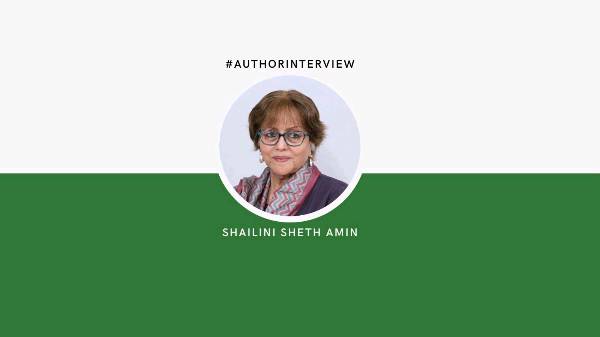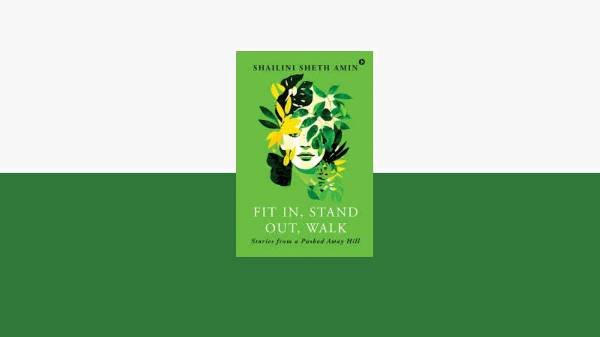#AskAnAuthor | In Conversation with Shailini Sheth Amin
Hello, book lovers on Swell. Today's ask an author interview features Shailini Sheth Amin, the talented author behind the anthology 'Fit in. Standout. Walk'. So this memoir is about Neelima, an orphan child from Mumbai who goes on to become a sustainability warrior. The story is also of the vision and passion of a working woman and her struggles to remain her own person as a daughter, a wife, a divorcee, a mother and a widow, and her deep and loving connectedness with nature and lifelong mentors
This level of detachment in writing I thought was needed the journey of Neelima, apart from delving into many of her personal, painful realities, because of this intention and this narrative, it has become a story of a person with a life of her own, and the tone and honesty and opening out of the closeted feelings and emotions expressed without too many emotions has helped while staying detached, hopefully all the time. This perhaps invites readers to break away from their barriers and dilemmas
Swell Team
@Swell · 0:15
Thank you, Ramya. The book is primarily based on the events and experiences of my own life, and I want to put it out right up front. Many names are changed to respect the privacy of my near and dear ones and to tell the story. A name of protagonist Neelima is selected. Apart from distancing heard from my life in the context near me. It has served several layers of purposes for me
Your book also beautifully spotlights the lives of inspiring women who nurture and mentor the protagonist in different ways. I'm very curious to know if some of these characters are in fact based on experiences from your personal life. And if so, I'd love for you to talk about these mentors and the influence that they have had in shaping your journey
Yes. Neelima was an orphan found in a garden in Mumbai. She was adopted by Surbhi, a sociologist teaching in Bombay University. Surbhi's family became Neelima's family. If you call it a family, that is. Neelima's family was different, though very much grounded. She had an unusual childhood with a profound losses along with an inspiration with a group of inspiring women around her with their fascinating lives. It was family of women. Her mother Surbhi had a doctorate in sociology
One thing that really stood out in your book was the fact that your stories address a range of social and personal realities, from abandonment and adoption to bisexuality and domestic abuse. How did you approach writing these lesser discussed, sensitive topics? And what do you hope readers will take away from your narrative?
Many women who are not working outside the homes, too, are lifelong victims of such aggression and bullying, and their lives are destroyed. The book deals with the social and personal realities of these and of migration, isolation, depression, sexuality, relationship abuse, and its complexity in the contemporary life choices and their consequences. When woke ism and victimhood cultures growing in some communities
They do not need to do this because men are allowed to hold two distinct identities, public and personal. The comfort cushion of the family is given, and that is why perhaps it does not merit much attention and description. How many times have we heard when men talking about other men, they said, oh, this is the personal life and we can't really talk, talk about it. It's not a dumb thing
My husband, an Indian, born in East Africa and had served as an officer in the Royal Air Force. We lived in England for years and I became part of the culture and the lifestyle of that country. Living in England, I have had an opportunity to see both sides of the international textile chain from the producer side and from the buyer consumer side. In the UK









